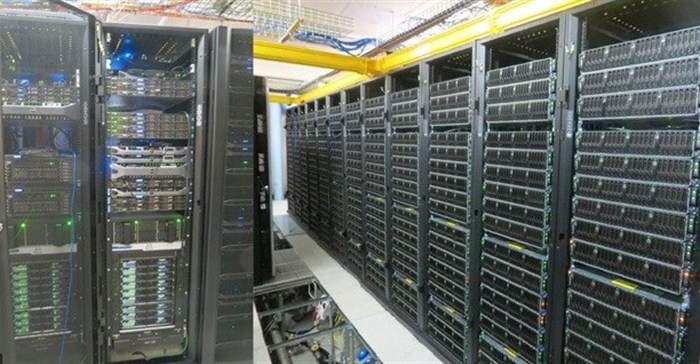
Top stories






More news





ESG & Sustainability
#Sona2026: President announces crisis committee to tackle SA's water challenges









Lengau was built in South Africa by South Africans for South Africans. It is set to increase the Centre’s service offering to the growing computational requirements of its users, many of whom are scientific researchers serving the needs of South Africa. Noting that scientists are the people capable of changing our future, the value of high performance computing in research was stressed. “The ubiquitous nature of data is a new resource. Extraction of information from data is where value lies. There’s a need for technology that manages and understands data. High performance computing can do this,” commented Dr Thomas Auf der Heyde, deputy director-general: research development and support, DST.
The super computer has processing speed capable of a thousand-trillion floating point operations per second. Floating point operations, or flops, are used in computing to calculate extremely long numbers. With over 40,000 cores, the machine is the fastest computer on the African continent owing to its speed of roughly one petaflops (1,000 teraflops), which is 15 times faster than the previous system named Tsessebe (Setswana for 'antelope').
The Dell HPC system comprises 1,039 Dell PowerEdge servers, based on Intel Xeon processors totalling 19 racks of compute nodes and storage. It has a total Dell Storage capacity of five petabytes, and uses Dell Networking Ethernet switches and Mellanox EDR InfiniBand with a maximum interconnect speed of 56 GB/s.
Dr Happy Sithole is the director at CHPC and is credited as the visionary behind the upgrade. He stressed the importance of technology that is relevant to its market, mentioning that in the building of Lengau, the starting point was contacting their users and asking them what their needs are. “Relevance goes beyond design. In some countries, their super computers are very fast, but they’re not in sync with community needs. Our mission is to provide world-class computing systems which are relevant, to facilitate cutting-edge research.”

The system has been in preliminary use for approximately a month now, to provide stakeholders the opportunity to test it and provide feedback. A handful of them were in attendance at the launch, presenting on their experience of Lengau thus far and demonstrating the benefits the super computer brings to their respective work. The stakeholder presentations included biometrics research by UCT; climate modelling research by CSIR; material science research by the University of Limpopo; and astronomy research presented by SKA South Africa.
Although the bulk of Lengau’s use is for academic research, it’s also used in industry. Representing the private sector at the launch was Mintek, a provider of minerals processing and metallurgical engineering products and services. Commenting on the subject, Werner Janse van Rensburg of CHPC said, “We also want to see it increase the profitability of SA companies.”
The key advantages of Lengau are:
• Effective performance of large scale (i.e. many cores, many teraflops) simulations that were impossible in the past, opening completely new avenues of research.
• Effective capacity to build the private sector/non-academic user base of the CHPC for improved national economic benefit to be realised from HPC utilisation.Jim Ganthier, VP/GM of engineered solutions and cloud at Dell, believes the benefits will be far-reaching. He said that Lengau will provide new access to new research, resulting in advancements in big data, cloud and machine learning, to name a few. More than this, he believes that there are national economic benefits attached to the system as it acts as an enabler for human potential. “It’s not just about products, it’s about progress,” he asserted.
